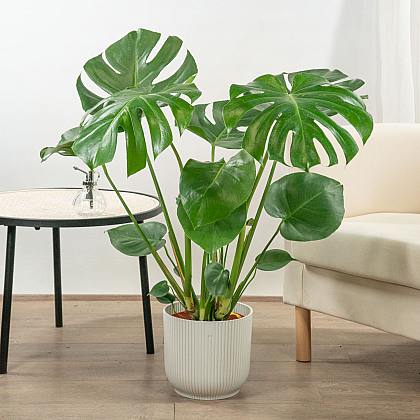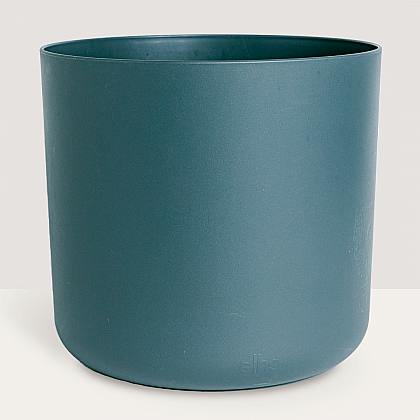Discover our e-commerce of organic plants in Europe and grow with a conscience
Caring for the environment and health are increasingly relevant issues in our society. That's why it's important to make conscious choices in our daily lives, including gardening
Caring for the environment and health are increasingly relevant issues in our society. That's why it's important to make conscious choices in our daily lives, including gardening. In this article we present our e-commerce of organic plants in Europe, which aims to offer our customers a sustainable and responsible alternative to growing plants at home. Learn what organic plants are, what their benefits are, and how you can grow them effectively in your home. Join our community of conscious gardeners and discover how you can contribute to caring for the planet while enjoying the beauty of plants.
A Sustainable Approach to Gardening
Sustainable gardening is a way to grow plants without harming the environment. This approach involves the use of nature-friendly techniques and tools, as well as the choice of native plants that do not require large amounts of water and artificial nutrients. In addition, the use of chemical pesticides and herbicides, which can pollute soil and water, is avoided, and natural methods are chosen to control pests and diseases. Sustainable gardening also involves responsible waste management, such as composting plant waste to produce natural compost. Another important practice is the conservation of biodiversity, as native plants are essential to maintain ecological balance and provide food and shelter for local wildlife. In short, sustainable gardening is a way to take care of the planet while enjoying the pleasure of growing our own plants. Aware of this, in our e-commerce we offer a wide variety of organic plants and sustainable tools to help you create an environmentally friendly garden.
Organic plants: What are they and why are they important?
Organic plants are those that are grown without the use of pesticides, herbicides, or chemical fertilizers. Instead, sustainable and natural farming techniques are used to control pests and encourage plant growth. The importance of organic plants lies in the multiple benefits they offer for both our health and the environment. By not using toxic chemicals, exposure to substances that are harmful to our bodies is reduced and the biodiversity of the soil and surrounding ecosystems is protected. In addition, organic plants have a higher nutritional content, as they are grown in more nutrient-rich soils and are not exposed to chemicals that can decrease their nutritional value. Another benefit is that growing organic plants contributes to the fight against climate change, as fewer greenhouse gases are emitted and the conservation of local fauna and flora is promoted. In short, opting for organic plants is a way to take care of our health, protect the environment and support sustainable agricultural practices.
Varieties of organic plants available in our e-commerce
In our e-commerce of organic plants in Europe, we have a wide variety of plants available for sale. From aromatic herbs such as mint and rosemary, to vegetables such as tomatoes and carrots, to ornamental plants such as daisies and lilies. All our plants are grown organically, without pesticides or chemicals that are harmful to the environment and human health. In addition, we offer local and indigenous varieties from each region, helping to preserve biodiversity and encourage sustainable agriculture. We also have plants adapted to Different Climates and light conditions, so our customers can find the perfect plant for their home or garden. Among the most popular varieties are fruit trees such as apple and pear trees, houseplants such as sansevieria and ribbon, and aromatic plants such as lavender and thyme. In addition, our selection is constantly updated with new varieties according to the season and trends in organic gardening. We offer our customers a unique experience of buying plants that are conscious and responsible with the environment.
How to grow organic plants at home?
How to grow organic plants at home?
Growing organic plants at home is a rewarding way to contribute to the environment and enjoy fresh, healthy food. Here are some tips for starting your own organic garden at home. First, choose a sunny spot in your garden or balcony where plants can receive at least 6 hours of sunlight a day. Next, prepare the soil by using organic compost and avoiding the use of chemicals. You can make your own compost from food scraps and plant waste to naturally enrich the soil. Then, select the right seeds or seedlings for your climate and available space. It's important to opt for hardy, local varieties that adapt well to your environment. During the growing process, it uses natural methods to control pests and diseases, such as crop rotation, the use of natural herbal insecticides, and the intercropping of insect-repellent plants. Also, water your plants sparingly, avoiding wasting water. Also remember to maintain a balance between the different elements of your garden's ecosystem, encouraging the presence of pollinators and other beneficial insects. By growing organic plants at home, you'll not only be providing healthy food for you and your family, but you'll also be contributing to environmental conservation and promoting sustainable practices in agriculture.
Tips for caring for your organic plants
Tips for caring for your organic plants
Taking care of your organic plants is essential to maintaining a healthy and sustainable garden. Here are some practical tips to make sure your plants grow optimally:
1. Water properly: It is important to water your plants properly, avoiding wasting water. Be sure to water them in the cooler hours of the day and use techniques such as drip irrigation to prevent excessive evaporation.
2. Use organic fertilizer: Instead of using chemical fertilizers, opt for organic fertilizers. These are more environmentally friendly and provide natural nutrients to the plants.
3. Control pests naturally: Instead of resorting to chemical pesticides, look for natural methods to control pests. You can use natural insecticides, such as essential oils or homemade insecticidal soap.
4. Remember the importance of pruning: regular pruning helps maintain plant health and promotes proper growth. Be sure to use clean, sharp tools to avoid damaging the plants.
5. Observe and listen to your plants: Pay attention to the signals your plants give you. If you notice yellowing or wilting leaves, it may be a sign of a lack of water or nutrients. Also look for changes in growth or the presence of disease.
By following these tips, you can enjoy a vibrant and vibrant organic garden. Remember that consciously caring for your plants not only benefits the environment, but also your personal well-being by connecting with nature. Enjoy growing your organic plants!
Health and Environmental Benefits of Growing Organic Plants
Growing organic plants not only benefits our health, but also the environment. First of all, by choosing organic plants, we avoid the use of pesticides and chemicals that are harmful to our health. This means that the fruits, vegetables, and herbs we grow at home are safer and healthier to consume. In addition, by growing our own organic plants, we reduce dependence on food produced on large farms that use intensive and environmentally harmful methods.
The cultivation of organic plants also contributes to soil and water conservation. Organic farming methods promote soil fertility through practices such as crop rotation and the use of organic fertilizers. This helps maintain soil structure and prevent erosion. In addition, by avoiding the use of chemical pesticides, the contamination of groundwater and rivers is avoided.
Another important benefit is the promotion of biodiversity. By growing organic plants, we are creating a favorable environment for beneficial insects, birds, and other animals that contribute to the natural balance of our garden. This helps control pests naturally and reduces the need to use pesticides.
In short, growing organic plants not only gives us healthier food, but also helps protect the environment. By opting for this sustainable approach, we are taking concrete steps to take care of our health and preserve the natural balance of our environment.
Join our community of mindful gardeners
Join our community of conscious gardeners and become part of a movement that seeks to promote sustainability and care for the environment. By joining our community, you will have access to a network of people who are passionate about organic gardening and you will be able to share your knowledge and experiences with them. In addition, you will receive useful tips on how to grow plants sustainably and how to care for them properly. You will also have the opportunity to participate in events and workshops related to organic gardening, where you can learn more about this practice and meet other members of the community.
Being part of our community will not only allow you to improve your skills as a gardener, but you will also contribute to the care of the environment. By growing organic plants, you're helping to reduce the use of toxic chemicals in soil and water, which has a positive impact on the health of people and animals. In addition, organic plants are an important source of oxygen and help reduce air pollution.
In short, joining our community of conscious gardeners is a great way to learn more about eco-friendly gardening and make a positive contribution to the environment. In addition, it is a unique opportunity to connect with people who are passionate about this practice and share enriching experiences. If you are interested in being part of this community, do not hesitate to visit our e-commerce of organic plants in Europe and discover everything we have to offer.
In this article, we've explored the importance of growing organic plants and how to do it consciously. Our organic plant e-commerce in Europe offers a wide variety of options for those who want to take a sustainable approach to gardening. From flowers to herbs to vegetables, there's something for every plant lover. In addition, we have shared helpful tips for caring for these plants and highlighted the benefits to both health and the environment of growing organically. However, it's important to remember that every little action counts when it comes to protecting our planet. Therefore, we invite you to reflect on how you can apply this knowledge in your own life and how you can foster positive change in your environment. Join our community of conscious gardeners and start growing with awareness!


